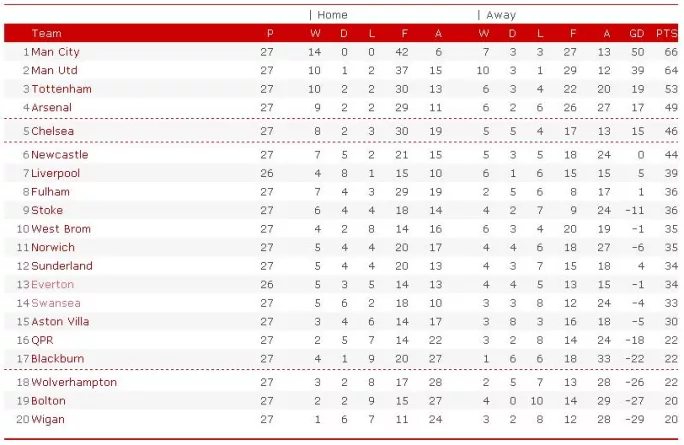Three-year delay for ‘fair’ league tables
Secondary schools may have to wait up to three extra years before a fairer system of judging their performance is introduced, the government has revealed.
From 2016 the Department for Education (DfE) will base its key measure of secondary school success on the rate of student academic progress.
Progress or “value added” is recorded in existing league tables by comparing pupils’ GCSE results to their Key Stage 2 achievements. But now the government wants to make the same comparisons in a much more equitable way.
The change would allow all secondaries to show they were improving simultaneously, a scenario the current system could not credit. Ministers had hoped it would be introduced from 2016.
But the DfE it now says it may not be until 2019. Brian Lightman, general secretary of the Association of School and College Leaders, said: “I can understand why there problems with this.
“But while we welcome the direction of travel here, we are very concerned about the interim while all of these changes are happening and how we can ensure that judgements made about the school system are accurate.
“That is an enormous challenge and one that stems from trying to change everything at once.”
At the moment, valued added is calculated as a measure of how much progress pupils make in a school, relative to the progress made by those in other schools during the same year.
So, by definition, there will always be a significant number of secondaries that are below average on the measure - even if progress in all schools improved.
Recognising this problem, the DfE instead wants to compare progress levels in schools against the average achieved three years ago, enabling positive scores for all secondaries if their performances merited it.
“This approach would recognise an improving system,” the DfE explained in October. “More than half of pupils could achieve positive progress scores if GCSE results had improved over the previous three years.”
It said then that experts would be consulted on whether the change could be brought in from 2016. But now the DfE has revealed that this will not happen and that it may not be introduced in 2017 or 2018 either.
The DfE has decided it cannot judge schools’ progress in 2016 against the average from 2013 because of distortions caused by other changes to the accountability system.
It expects that swapping the main performance measure from one that looks at the results of eight rather than five GCSEs will lead to a period of flux as some schools increase the number of academic subjects they offer.
“This change in the curriculum offer means results could fluctuate considerably between 2013 and 2016 - expectations set three years in advance could be misleading during this period,” the DfE explained.
It also warned that there could be “extra complexity” involved in introducing the fairer progress calculation in 2017 and 2018 because they are the first years that new reformed GCSEs will be sat. It is requesting people’s views on what should happen in those years.
Keep reading for just £1 per month
You've reached your limit of free articles this month. Subscribe for £1 per month for three months and get:
- Unlimited access to all Tes magazine content
- Exclusive subscriber-only stories
- Award-winning email newsletters




